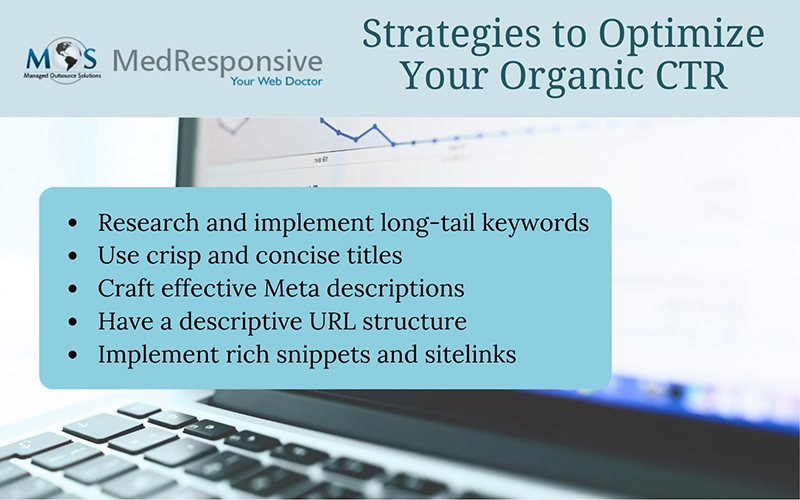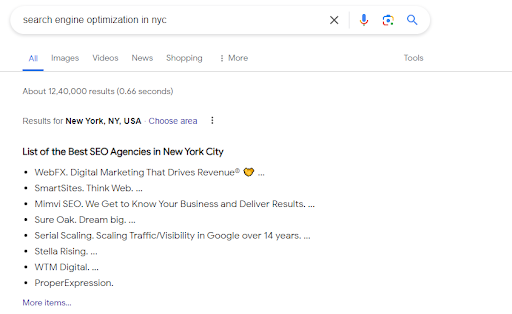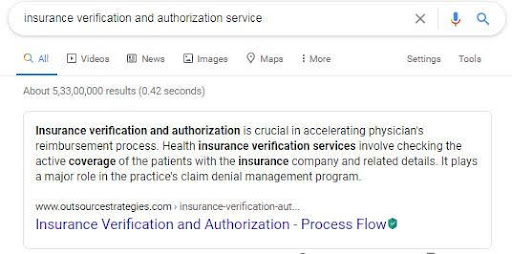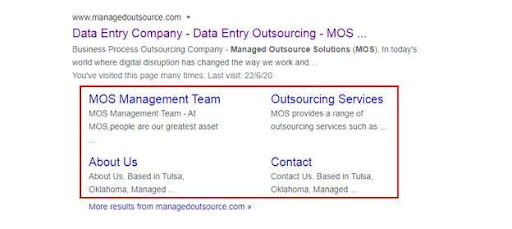Worried about your website not getting enough organic search traffic even with good ranking in the SERPs? That’s because you are not getting enough organic click-through rates (CTR). Any business – be it healthcare, legal, education or any other – looking for traffic, ranking, branding, and revenue has to consider how many people are clicking on their listing and not bouncing immediately. You have to attract more visitors who are likely to stick around and then convert. For that to happen, you need to improve organic CTR. Rely on an experienced organic SEO company that provides professional support to improve organic rankings.
Let’s begin with the basics of CTR!
What Is Organic CTR?
Organic click-through rate, also known as organic CTR, is often expressed as the percentage of searchers clicking on a specific search result on a search engine after making a search query. Though organic CTR is largely based on ranking position, it is also highly influenced by a result’s title tag, description, URL and the presence of Rich Snippets.
How to Calculate Organic CTR?
Organic CTR is function of 3 variables:
- Time frame of your calculation
- How often a URL appeared in searches for a keyword
- The percentage of searchers clicking on this URL
In short,
organic CTR = (Clicks / Impressions) *100That is, it is obtained by dividing the number of clicks on the URL by the number of searches (impressions) for that term for a particular time period, multiplied by 100. For instance, if your website appears 100 times and gets clicked 5 times, your CTR is 5%.
Why Is Improving Organic CTR Important?
If you want more traffic to your website, without higher rankings, then having a higher click-through-rate is important. Also, CTR is a key search engine ranking signal as it was found that a page with a higher than average CTR got a rankings boost. To validate this point, Google has made statements that suggest they do use CTR in their algorithm (backlinko.com).
How to Optimize Organic CTR?
We all tend to click on the first few results instinctively. But what if your URL is not among the 3 top results? You can still improve and optimize your organic CTR and generate more organic traffic to your website, that too, without having to improve your rankings, by following certain proven ways.
They are:
- Research and Implement Long-tail Keywords:
Long-tail keywords are highly focused and defined search strings that have more than three to four words. These keywords are a vital part of every SEO strategy as it helps with matching user intent. For instance, if someone is searching for “search engine optimization”, you never know what’s on his mind. He might be looking for a search engine optimization tutorial, technique, or a course. And obviously, the results that are generated for this keyword will have low CTR, because they won’t serve the user intent very well. But if the query is “search engine optimization in NYC” it’s clear that the person would be looking for search engine optimization services in NYC.
Now, for this long-tail query, you can generate highly targeted content on your website wherein you need to talk about what kind of search engine optimization service you provide and so on. When the same content is shown among the top search engine results, the searcher will click on it because the content ranks top and matches with his intent and as a result, your URL gets a higher organic click-through rate.Tip:
To increase the volume of related organic queries you rank for, research long-tail keywords and integrate them into your content.Also, while including appropriate keywords in your content it is very important to implement keywords in the content in the right manner. Make sure that you don’t overuse the keywords and your keyword density is roughly 2-5%. Keep an eye on “keyword cannibalization” that is, targeting a specific term across multiple pages can have some potentially disastrous consequences by spreading out any organic clicks. So, identify whether keyword cannibalization exists on your website and resolve it.
- Use Crisp and Concise Titles:
When you rank in search results, your page title would be the first thing that a user is going to see. Therefore, it’s very important to write a clean, crisp and concise title that will deliver an overall idea of what the inside content will be. It will draw the attention of users and make them click on your link. Here are some strategies for writing eye-catching titles that can draw clicks to your website:- Include brackets in your titles. A HubSpot study found that headlines that had clarifications in brackets such as [interview],[photos], [slideshow], and so on, performed 38% better than headlines without such elaboration, suggesting that users are more likely to click on a URL if they get a clear idea regarding the content behind the headline.
- Try to avoid heavy title tags that your audiences may not understand as it is very boring and won’t get many clicks.
- Include the target keyword within the title.
- Make it click worthy by adding some emotions in your title – such as using words like amazing, awesome, insane, shocking, and so on – without being deceptive.
- Try using “number” headlines as it boosts CTR by 36%, a study by Conductor has found. Among the other four types of headlines – Normal, Question, How to, and Reader-addressing – number headlines resonated most by far – a full 15% more than the second place “reader-addressing.”
Tip:
Write a clean, crisp and concise title that will deliver an overall idea of what the inside content will be.
- Craft Effective Meta Descriptions:
Though Google has officially stated that a Meta description isn’t used as a ranking signal, a well-crafted and quality description can improve your organic CTR, and give a boost to your SEO. It means, well-written content in the description is not considered by the ranking algorithm, but it is considered by your users. They will definitely check for the Meta description to see if your content has what they are looking for. And as a result, if a user action is generated due to that, then Meta description is definitely accounted to decide the page ranking.Match your title and meta description to the search queries and be careful not to overdo the character limit for descriptions (which is approximately 150-170 characters).
Tip:
Write effective Meta description so that users know whether your content has what they are looking for.
- Have an Accurate and Descriptive URL Structure:
Page URL helps a user to build trust with the website by quickly scanning the name of the company and their keyword within the URL.An accurate and descriptive structure for the URL helps users understand the website and its content, by just looking at the snippet itself. Moreover, your page URL is an opportunity for long-tail keyword implementation, as it is one of the few things that appear on your link preview and helps to attract clicks.
Tip:
Include a descriptive URL structure for the users to understand the website and its content, by just looking at the snippet itself.
- Implement Rich Snippets and Sitelinks:
To enhance the information – both visually as well as contextually – and to attract clicks, implement rich snippets and sitelinks. These two are the best ways to increase your organic click-through rates.A normal search result shows the following information – such as SEO Title, URL, Meta description – as part of the snippet. You have to include meaningful and descriptive information in all these parts through rich snippets. By doing so, you may achieve better search results that are closely matching the intent of the user and thereby the probability of your SERP link getting clicked also increases double fold.
Similarly, sitelinks are small sub-listings appearing under the primary search results on the SERPs (search engine result pages) with a short description, which are internal links to the other pages or sections of a page in the website. Sitelinks are often found when a user performs a brand search. These links help users to easily navigate to relevant information around a website quickly and give users a better idea about the content and areas on the website – which then helps them see the significance to their particular question.Tip:
Implement rich snippets and sitelinks, to increase your organic click-through rates.
Before you begin using these proven ways to improve your organic CTR, you have to first identify your lowest organic CTR content, to know where to start. For that, visit your Google Search Console and download an analysis of your traffic. You have to navigate to Performance, make sure that Queries is selected and Average CTR is checked. Once you have found the queries that are driving that average down, implement these proven ways and improve your organic CTR. Or, you can simply rely on an experienced digital marketing services company for the best results. They will help increase the volume and quality of traffic to your website, making your services available to a wider audience, and help improve your revenue.
Take your brand to new heights online.
Reach out to explore our comprehensive digital marketing services!








